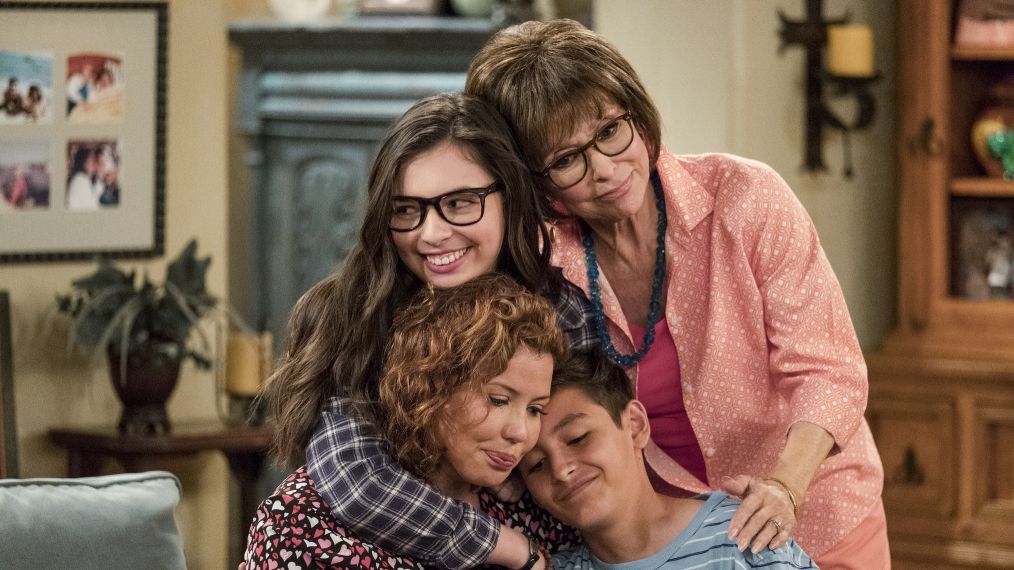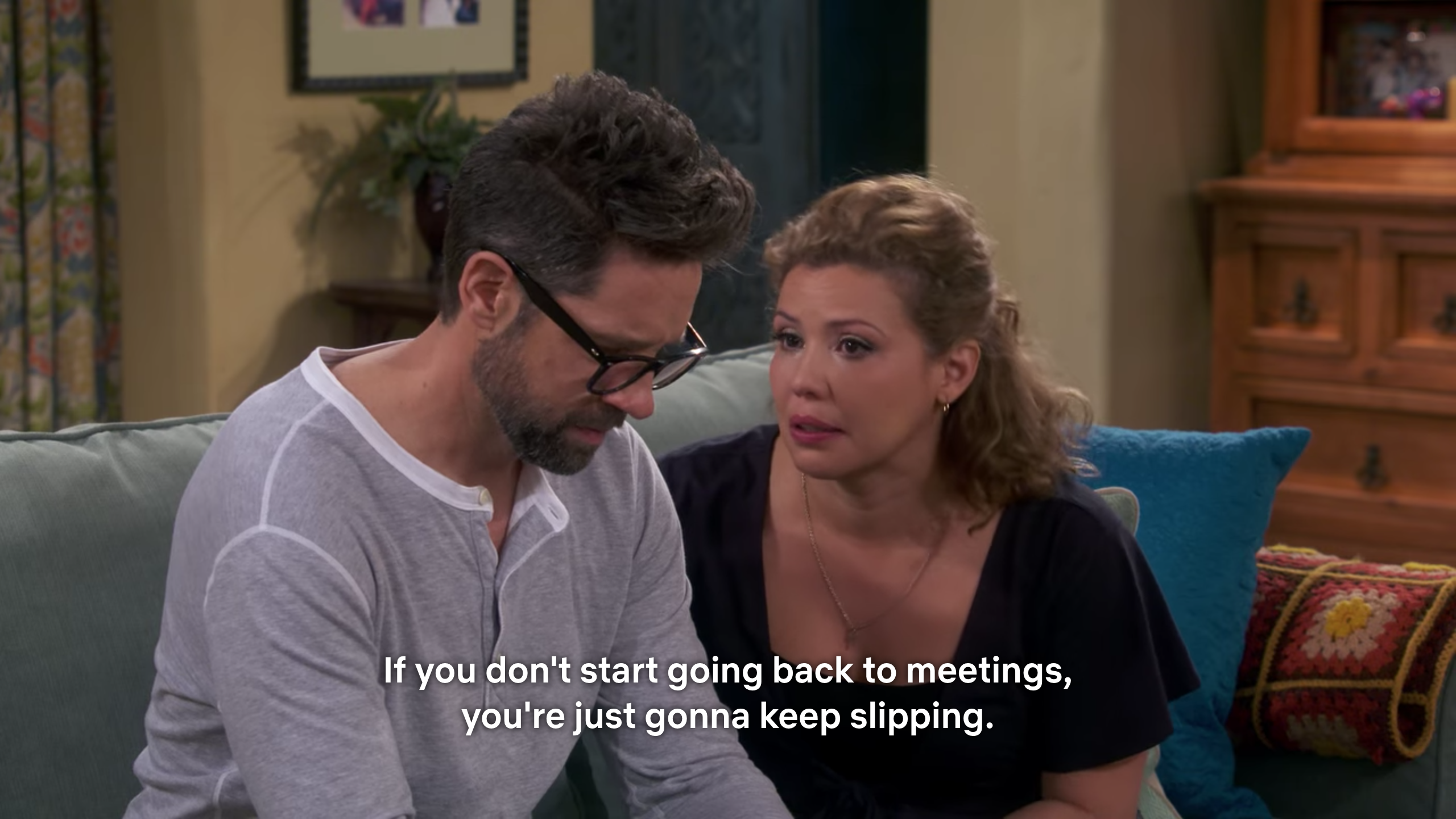How ‘One Day at a Time’s Characters Are Just as Resilient as the Comedy

Since 2017, One Day at a Time‘s Alvarez family has kept us on our toes. We have watched as they negotiated mental health, racism, homophobia — and especially, their very existence on our screens.
On Tuesday, November 25, ODAAT joined a small cohort of twice-axed shows after Pop TV declined to order more episodes. While it’s a blow to the show’s work in bringing viewers a truncated fourth season — and even a mid-pandemic animated special — all hope is not lost. Sony Pictures Television plans to shop the show again.
While a rarity, its reach for a fifth season is not surprising. Showrunners Gloria Calderón Kellett and Mike Royce have been vocal on Twitter about saving ODAAT since its first cancellation, and in its move to Pop TV, the show mobilized a large fanbase committed to its survival.
So… yes.
Much has changed at Viacom in the last year and unfortunately we won’t be on Pop anymore. Thanks to everybody over there for the opportunity to do season 4.
And guess what? We’re still trying for season 5.
What if #ODAAT was the first show ever on 3 networks? https://t.co/d8sJqQlTjs pic.twitter.com/MkgfBDNyuL
— Mike Royce (@MikeRoyce) November 24, 2020
What is most remarkable about the comedy’s story is not the resilience of its producers or fans off-screen, but how closely that resilience tracks with the arcs it gives its characters. Nearly every character on the show has had their own battles to overcome, often by facing the great discomfort to make them visible. Here are the official (and bonus) members of the Alvarez family that echo One Day at a Time‘s will to survive.
Penelope
Penelope (Justina Machado) is the anchor of the Alvarez family. Throughout the four seasons, viewers have been let into her experiences with mental illness. In Season 1, she grappled with taking anti-depressants and explaining this to her traditional Cuban mother, who was quick to deem therapy and medication as signs of weakness.
We saw attitudes shift in the second season when Penelope decided to stop taking her medication and tumbled into a depressive episode. In “Hello, Penelope,” she hit bottom. Lydia (Rita Moreno), wracked with worry, finally came around to support Penelope in the way she needed, while Penelope, in a bid for healing, heeded Schneider’s (Todd Grinnell) advice to go back on her medication.
Penelope’s struggle with mental illness was not reduced to a few episodes. Every so often, we were given unflinching, deep context over the arc of an episode, but mostly, ODAAT invested in Penelope’s struggle as a human one, showcasing the small challenges and victories of mental health in her day-to-day.
Lydia

(Netflix)
Lydia was a larger-than-life character, but she wasn’t a caricature. While lending the show snappy one-liners and an air of extravagance, she carried a heavy load like the rest of the family.
Originally from Cuba, Lydia was often poised at the intersection of her traditional upbringing and contemporary family. Constantly forced to reconcile her religious beliefs with new-to-her concepts, Lydia remained as mentally active as she was physically.
The comedy thoughtfully invested in Lydia’s experience as a widow. Tracking her grief throughout the seasons, we often saw Lydia talking to her late husband, Berto (Tony Plana), with all the authenticity and care of a living interaction. When she went into a coma in the Season 2 finale, she was visited by Berto in a dream, where she said she wasn’t ready to join him in the afterlife. Whether it’s grief, tradition, or even the uncertainty of being an immigrant in the U.S., Lydia had her burdens along with the rest of the characters. She just chose to dance them off.
Elena
Elena’s (Isabella Gomez) coming out as a lesbian was a huge arc in Season 1. While most of her family went to great efforts to accept and assure her, her father, Victor (James Martinez), walked out on her quinceañera, leaving her abandoned for a father-daughter dance.
We saw Elena blossom despite this. Beginning Season 1 as a lovable, if preachy social justice warrior — and one afflicted with anxiety — Elena grew steadily into her voice. This was proven in a Season 2 scene when she confronted her father with an emotional monologue, nearly a year after her quinceañera.
Passionate about politics and social justice, Elena’s blossoming relationship with Syd (Sheridan Pierce) gave her a partner in activism. In Season 4, Elena and Syd navigated college planning with surprising maturity, accepting that they might need to break up to reject the delusions of the young and in love. Their process illustrated just one example of the thoughtfulness with which Elena was determined to grow up.
Alex
In Season 4, Alex Alvarez (Marcel Ruiz) shined. The youngest of the characters, Alex brought biting sarcasm to the show, with a developing penchant for fashion as he transitioned from child to teenager. In Season 2, Alex was the target of racism at school when a peer told him to “go back to Mexico,” an experience that sparked a conversation on colorism among the family.
Implicit in the trials of growing up is the standard to which Alex felt he was held against his sister, mother, and grandmother. He wanted to learn fashion design in Season 4, but he was quickly discouraged when he registered for a class and faced a learning curve. In a frank conversation with Penelope about the weight of expectation, Alex came into his own with grace and candor, indicating he was learning something from his sister, Elena.
Schneider

(Netflix)
Schneider was the picture of white privilege, wealth, and cluelessness, although still an honorary member of the Alvarez family. A self-defined woke ally, Schneider was often a comedic vehicle for the show’s teachable moments. Still, in One Day at a Time fashion, Schneider was more than what his idiosyncrasies facilitated in the show. A struggle with alcoholism and addiction brought Schneider to his lowest point in a poignant Season 3 episode, during which Penelope and the Alvarezes rallied around him in support.
A future for ODAAT?
The fight for visibility is a burden that neither the Alvarez family, nor One Day at a Time, should have to take on — but they do. No character or plotline is rendered disposable in the sitcom’s universe, proving a production ethos that there is room for everyone and for everything and that all of it deserves to be seen and heard.
On- and off-screen, ODAAT and its characters approach spaces resistant to their belonging and recreate them. Whether the show will find a new home remains to be seen, but one thing is certain: where the resilience of the producers may end, that of the Alvarezes will always remain in the four seasons we were fortunate to get.











